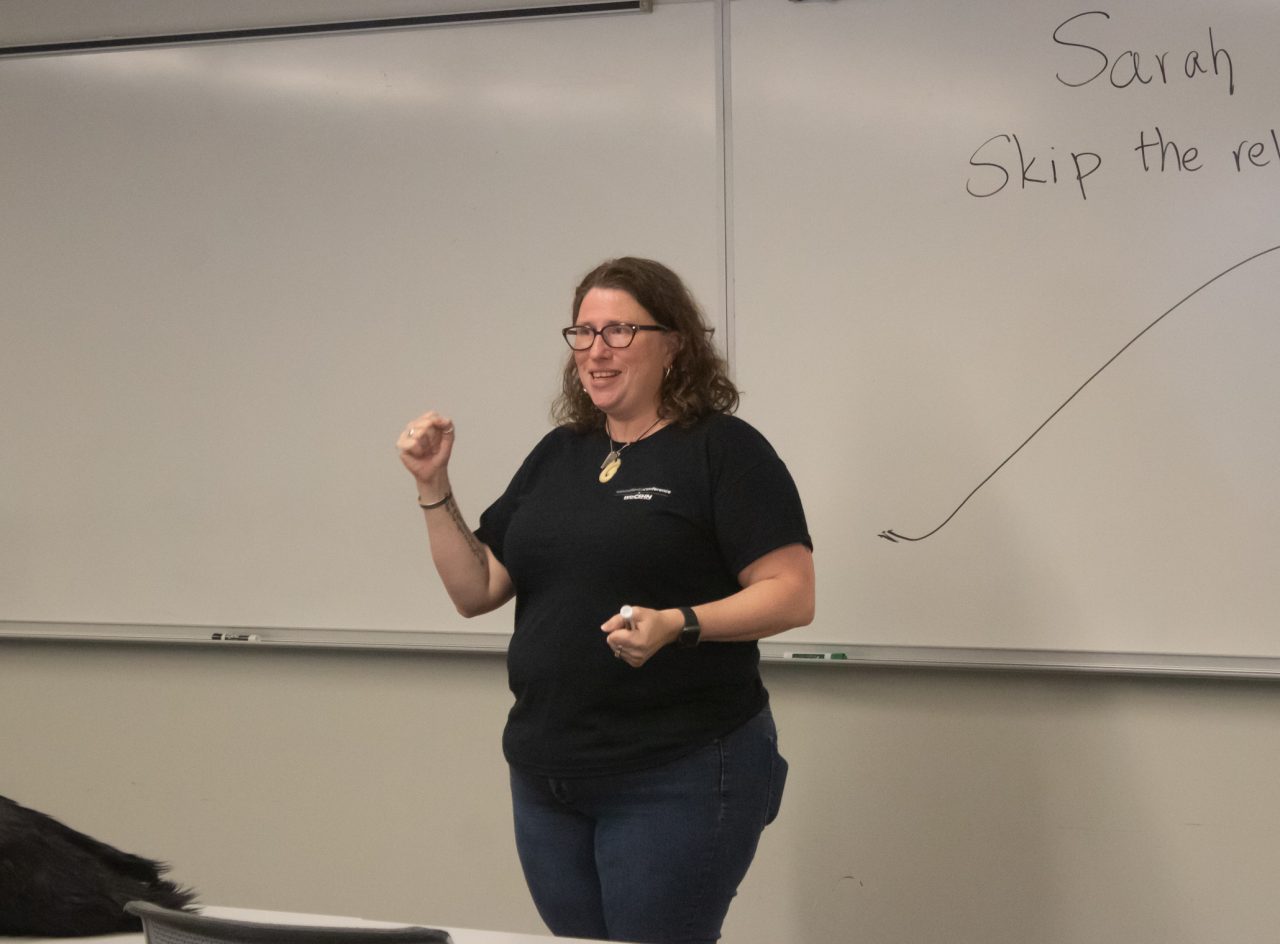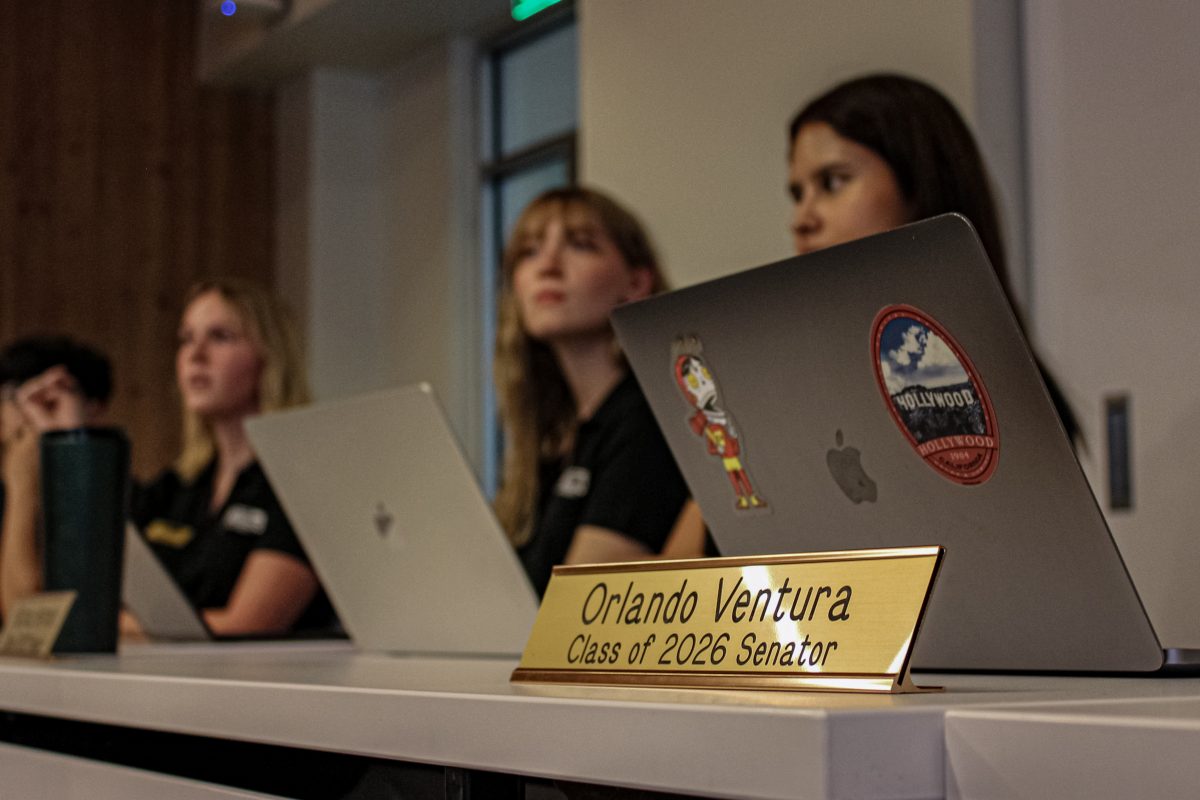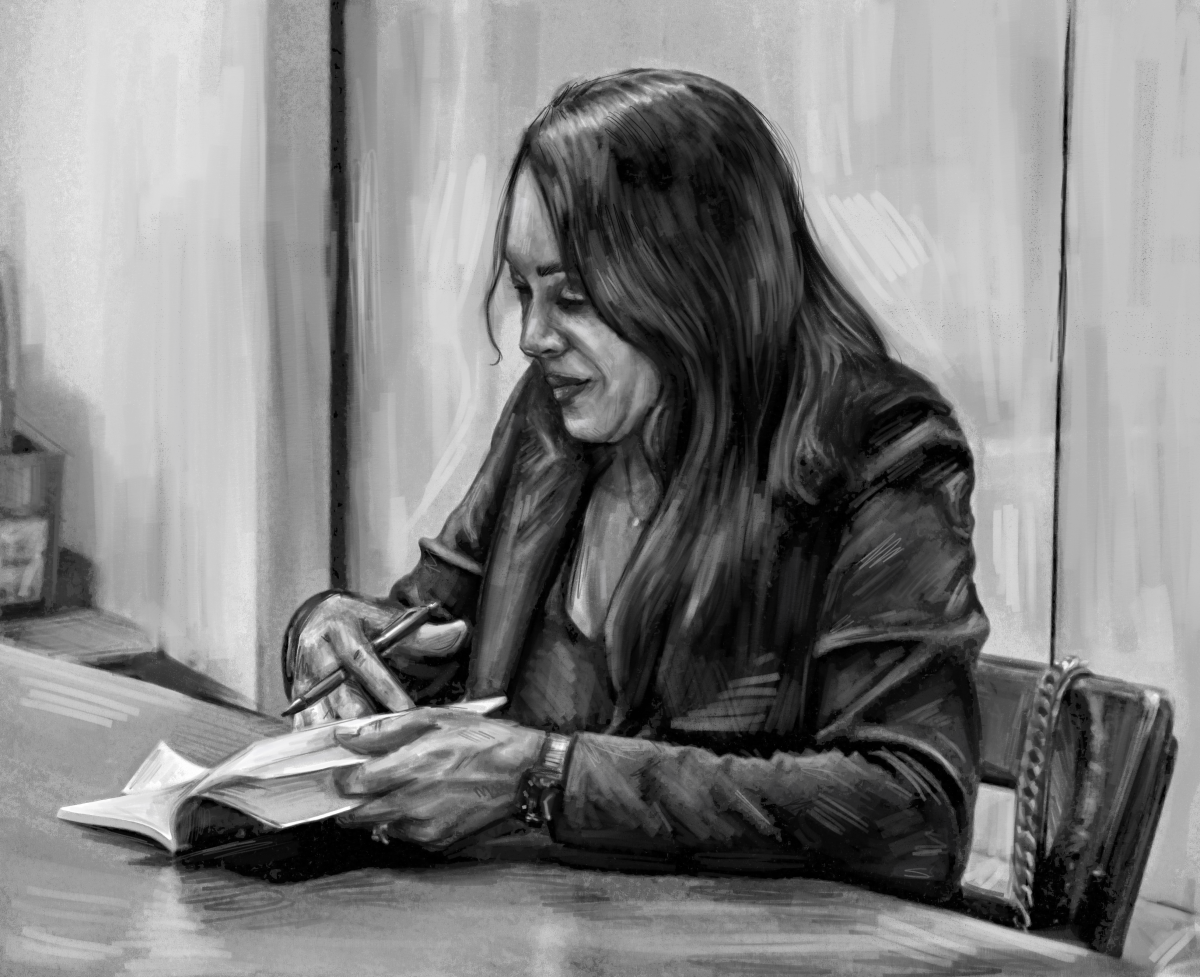Photo by Matthew Claybrook
On Monday night, about 20 students attended a lecture given by Sarah Sloane, writer and educator, about nontraditional sexuality and relationships.
This lecture was sponsored by the Department of Sociology and Anthropology and the Women and Gender Studies Program. The talk was organized by Amy Stone, professor of sociology and anthropology.
“I think it’s important to have people who are both knowledgeable and based in the community — so most of the people I’ve brought in have been community sex health educators — to talk about these things from a non-academic standpoint. I have lots of academic information I can give you, but can I give you advice on your relationship? Probably not,” Stone said.
Stone emphasized that the topics covered in the lecture could affect several aspects of relationships.
“So I think that having these kinds of conversations is really important. Having good communication in relationships helps some of the issues we see right now about consent and boundaries and people sharing values in relationships,” Stone said. “It’s not something I can always address in the classroom, but it’s something that I see a need in our students right, and I want to be a part of meeting that.”
Sloane began the lecture describing relationships with a metaphor — the relationship escalator. The relationship escalator describes the pathway that all relationships are expected to follow. At the beginning of the relationship escalator, a couple starts talking, then dating, then they should get married, buy a house. The relationship escalator keeps moving without a way for people who want to get off to remove themselves from the situation.
Sloane emphasized that it is difficult to refuse the escalator when that is what your society values. When the escalator is seen as the legitimized way to live, another choice is seen as de-legitimized in the eyes of others.
“We’re talking about legitimization. The ability to walk out of your house, to be seen as an adult, to be seen as a legitimized self — it’s about creating legitimization,” Sloane said during the lecture.
Sloane encouraged students to question what they want in their relationships without the fear of being judged for not being on the escalator.
“For us to stop and take a step back is counter to the way that culture — the way that the world — is running. We don’t encourage people to kind of step back and honor ourselves. To be able to step back and say, ‘Actually, what is important to me? What is valuable to me?’ That’s a source of, I think, true power,” Sloane said after the lecture.
Sloane hopes students take the lessons learned in the lecture in all parts of their lives.
“Question everything. So much of what is challenging for us in our lives is because we’re taking what we’re told at face value. That’s relationships, but that’s also life in general, and one of the cool things about speaking at a university is that this is fertile ground for people to ask those questions and to start the process of doing that throughout their entire lives,” Sloane said after the lecture.
Sloane believes that this learning can take place outside of the classroom.
“There’s no reason that shouldn’t start at the basics like how we relate to each other. It doesn’t have to wait for a big college class. It can be something we’re engaging in on an ongoing basis,” Sloane said after the lecture.
Junior Madeline Shaput believes that the escalator metaphor was a helpful tool throughout the lecture.
“I thought it was really good. It was really interesting to hear about all the ways that you can introduce freedom into the traditional relationship path. I think the use of the escalator was really useful as a metaphor, and it allowed me to think about the relationships that I see and the relationships that I want to model in the future,” Shaput said.
For first-year Heidi Neighbours, the lecture helped bring her clarity.
“I only had one long-term relationship in high school, and it’s been kind of weird to think about what I want because I don’t want any kids. But everything that’s modeled for me in the suburbs and in school has all been families, so it’s really different to see that there’s an alternative and that more people agree with me than I thought,” Neighbours said.









Amy • Sep 22, 2019 at 8:58 am
There’s nothing wrong with families, traditional or non traditional . Let’s always celebrate families.